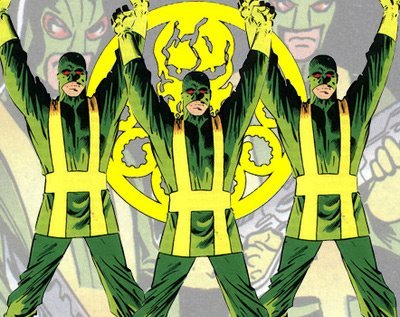Since SFWA announced that it would not consider books published by Random House's Hydra imprint credentials for membership, there has been a lot of discussion of the terms offered by Random House's digital imprints.
I don't think these are great terms by any means. (Do they really expect the author to pay for set up fees? Ew.)
But I've been surprised to see many people condemning RH for having a "life of copyright" contract. I'm pretty sure 90% of the contracts Random House signs authors to are for life of copyright. (The exception being licenses from other publishers, or foreign translations.)
In print publishing, life of copyright is the norm. I know it's not in the digital world--which is why this seems strange.
This doesn't (usually) mean the publisher will have the right to publish the book for the authors lifetime plus 70 years*. A publisher should have a provision--usually called "out of print termination" or "reversion of rights" which states how the author can get the publishing rights BACK.
Now, I've never done a deal with Hydra. But my issue with a lot of these print-turned-digital publishers is that they have a print mentality in these reversion of rights clauses. It will say the author can have the rights back if the book is no longer "available for sale." That was fine 20 years ago, when you would just walk into a B. Dalton and ask if the book was available and if they said no, that meant the book was out of print.
Now days, a book can be up online but not sell any copies. Is that still "in print"? Is that still "available for sale"?
So if you are about to sign one of these Hydra deals, I would check on that Out of Print clause. If they don't specify how many copies need to be sold or how much an author needs to make per royalty period for a book to be considered "in print," then we have a very big problem.
*Current US copyright law
ETA: John Scalzi got a copy of one of the RH digital imprint contracts. It is as I feared. The out of print clause is for a print publisher from before computers were invented. IF YOU ARE AN AUTHOR WITHOUT AN AGENT, PLEASE KNOW THAT YOU CAN NEGOTIATE THIS. Don't just sign the first thing they put in front of you!

No comments:
Post a Comment